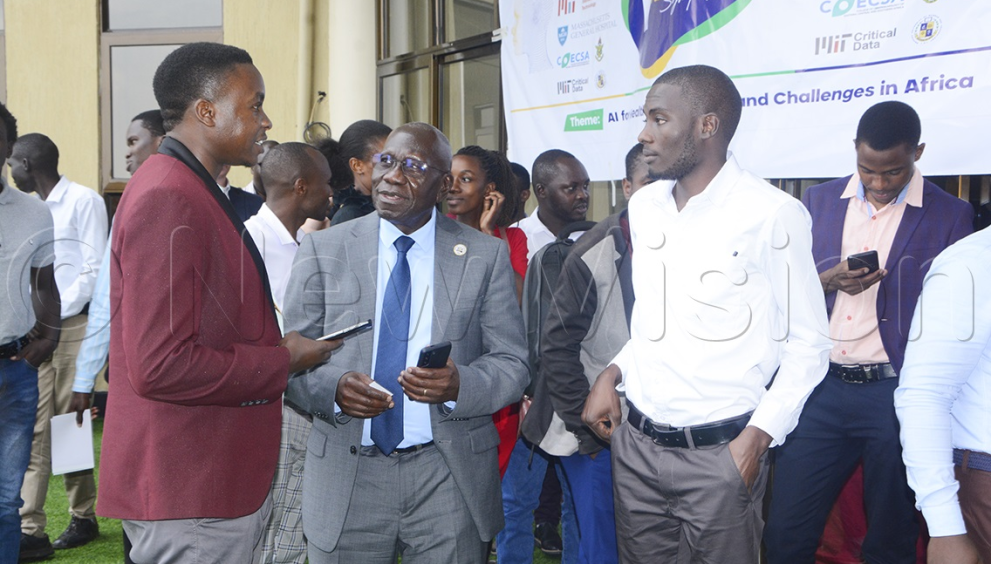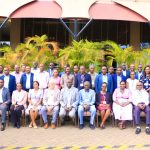Advancing Healthcare through Artificial Intelligence: Perspectives from Mbarara University

Senior medical professionals and researchers at Mbarara University of Science and Technology (MUST) are advocating for the integration of Artificial Intelligence (AI) into healthcare, emphasizing its potential to revolutionize diagnosis and treatment processes.

MBARARA – Senior medical doctors and researchers at Mbarara University of Science and Technology (MUST) have urged the government to take the lead in using Artificial Intelligence (AI) in the healthcare sector by providing financing and improving hospital facilities.
They suggest that if properly used, AI may deliver speedy solutions in all aspects of healthcare. This includes diagnosing complex disorders.
Dr. Simon Arunga, an ophthalmologist at MUST, provides the example of an eye expert who works with serious blindness diseases caused by diabetes and eye pressure as someone who does not require a physical diagnosis.
“With artificial intelligence built in the computer, such jobs can be accomplished quickly. We can just snap a picture of that sick individual, and the artificial intelligence within can inform us whether or not this person is at risk of blindness due to the disease’s severe stage, and what we should do,” added Arunga.
He continued, “This does not require an eye professional to go out and evaluate individuals; instead, any qualified person can simply capture images of the patient, and Artificial Intelligence will be able to assist. It is quite exciting for us health scientists in Africa to be at this level of advanced technology.”
The push for AI dominated the conversation at Mbarara University of Science and Technology’s Data Science Research Hub conference, which took place on February 8, 2024, at the Las Vegas Hotel in Mbarara City.
Artificial intelligence is the simulation of human intelligence in a machine that is programmed to think and act like humans.
However, Arunga stated that Artificial Intelligence is ideally suited to a setting with quick and stable internet, standby power, and powerful computers capable of doing many analyses.
“If well harnessed, this technology has the capacity to provide solutions across many areas in health care like in care, eye care and non-communicable diseases.” According to Arunga,
He said: “That’s why we call upon the government to take the lead in this by providing strong regulations on how we can interact in the space of Artificial Intelligence but also can invest in infrastructure and the resources we need like fast internet and facilities which can host very big servers and stable electricity”
What has been accomplished so far? Arunga stated that at MUST, they have been pioneering research on how to use this technology to help them diagnose some health disorders.
Leo Anthony Celi, Associate Professor of Medicine at Harvard Medical School in the United States, stated that Artificial Intelligence must become a part of the lives of all health practitioners by investing in data collection.
Leo pointed out that the artificial intelligence tools that are currently being deployed are trained on data from high-income countries in the global north, and that same techniques will fail when applied in Africa, Asia, and South America.
“Governments and ministries in Africa need to invest in creating data that will be used in training artificial intelligence students and the second requirement would be building capacity so that students from Uganda can build the modules themselves,” Leo Celi, the minister of education, stated.
Prof. Celestine Obua, Vice Chancellor for Academic Affairs “In order to bring our students on board to utilize Artificial Intelligence we need to design courses or modules that guide them towards machine learning, we need to prepare our students to use these powerful machines”
“But even attending such a symposium like this one is already a learning process for these students, there is a lot they have learnt from this symposium than probably if they sat in about 10 classes, however as the university, we need to be cognizant of the fact that we need to design certain tailored courses for students in general not necessarily in medical,” Obua went on to say.







